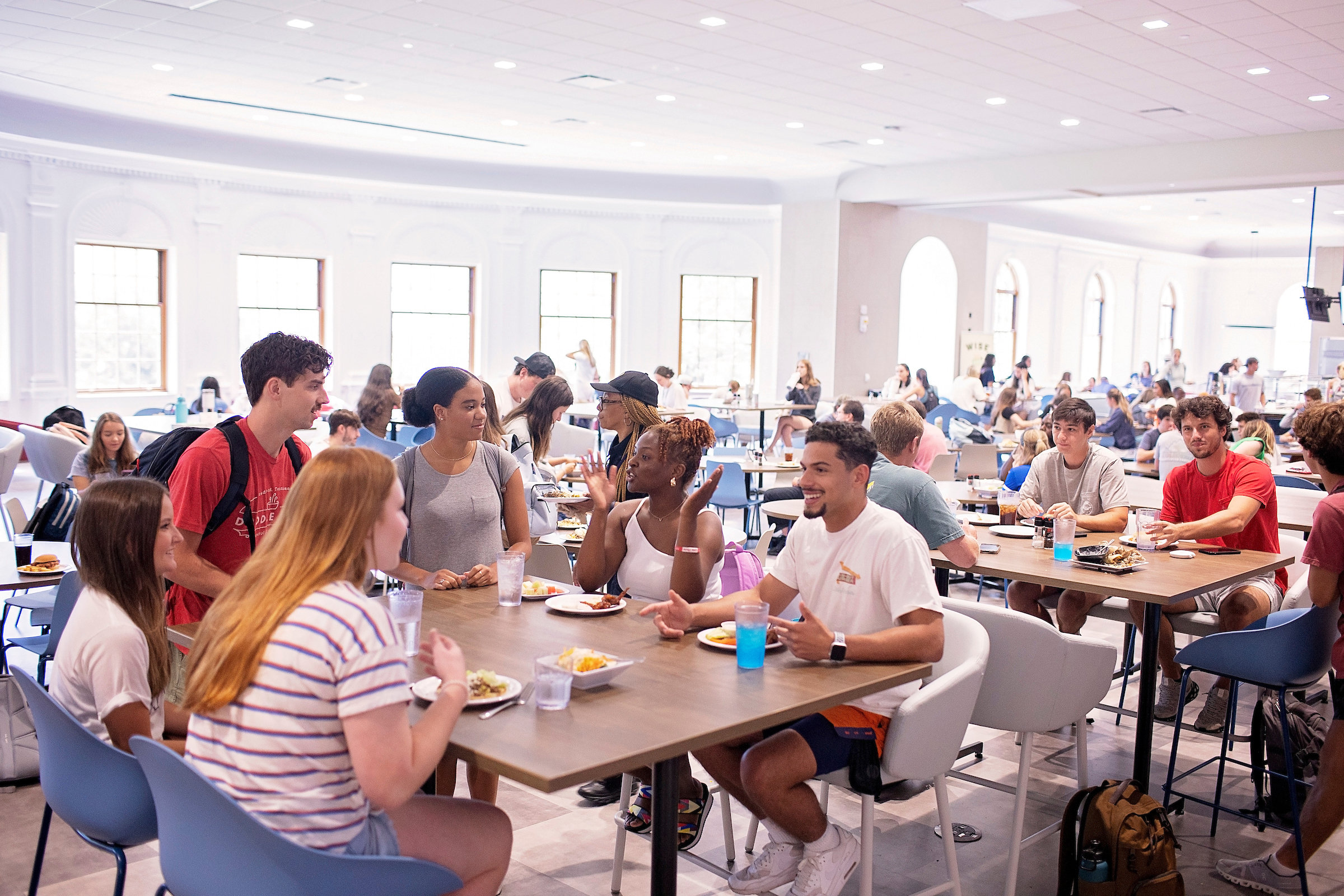
The $10 million reimagining of Samford University’s dining hall, affectionately known as the Caf, stoked appetites and deepened communal vibes around mealtime. Now comes the capper to its first-year success story—a splash of industry acclaim.
The National Association of College & University Food Services (NACUFS) honored the Caf within the category of Innovative Dining Program of the Year.
“Feedback to the renovation has been amazing across campus, and now we have this much deserved piece of added recognition,” said Wade Walker, Samford’s director of business services. “We wanted our dining experience to be special and the vision came together.”
Opened a half-century ago, the top-floor dining hall inside the Ralph W. Beeson University Center was in need of a complete modernization during the summer of 2023. The project, designed in conjunction with Samford’s new food services provider, Aramark Collegiate Hospitality, utilized market research and input from student focus groups.
Aramark’s team sensed Samford’s desire to try something bold, even if it meant developing a system unique from other campuses. The university sought to encourage fellowship through an open-concept dining hall that would give students more personalized meal choices.
The resulting collaboration essentially produced a pilot program that transformed the 20,000-square-foot venue in unconventional ways.
Collegiate dining halls typically are access-controlled by requiring customers to swipe their IDs at the entry door. Samford and Aramark envisioned a more wide-open layout, allowing guests to congregate even if they aren’t dining. The mission was to create a vibrant atmosphere that serves as a social catalyst, a place where students forge lasting connections over elevated and diversified meals.
Now diners swipe their meal cards directly at 16 individual food stations—enjoying made-to-order dishes ranging from hand-battered fried chicken and hot sandwiches to international options such as chipotle mushroom tacos, Korean bibimbap and gochujang chicken bao. Along with a carvery and a Mongolian grill, there’s a station providing meals free of gluten and allergens such as milk, egg, peanut, tree nut, soy, sesame, wheat and shellfish.
Flexible meal plans allow for unlimited dining or a la carte service tailored to commuters. And there’s another personal touch: The point-of-sale card-tap system instituted by Samford’s IT department allows servers to know a guest’s name, face and preferences.
“The food quality is much better and the variation is next level,” Walker said. “Students today are very particular. They like to see what you’re doing and they like to pick their selections.”
Samford received a bronze award from NACUFS. The judges highlighted nine collegiate dining programs who were forward-thinking in operations, menu, guest experience, student affordability and technology. Data compiled from every guest’s transaction will help refine future menus, as will digital surveying and continuing focus groups. All in an effort to make the Caf a hub for interaction among students, faculty and staff.
Said Walker, “We’re already seeing that community-building happening.”
In a follow-up survey, one student wrote of the renovation: “It’s modern, but true to Samford. It’s big enough where I feel as if I’m not missing out on a ‘caf experience,’ like being at a major state school, but it’s small enough to where I feel as if I can still make lasting and meaningful connections.”
